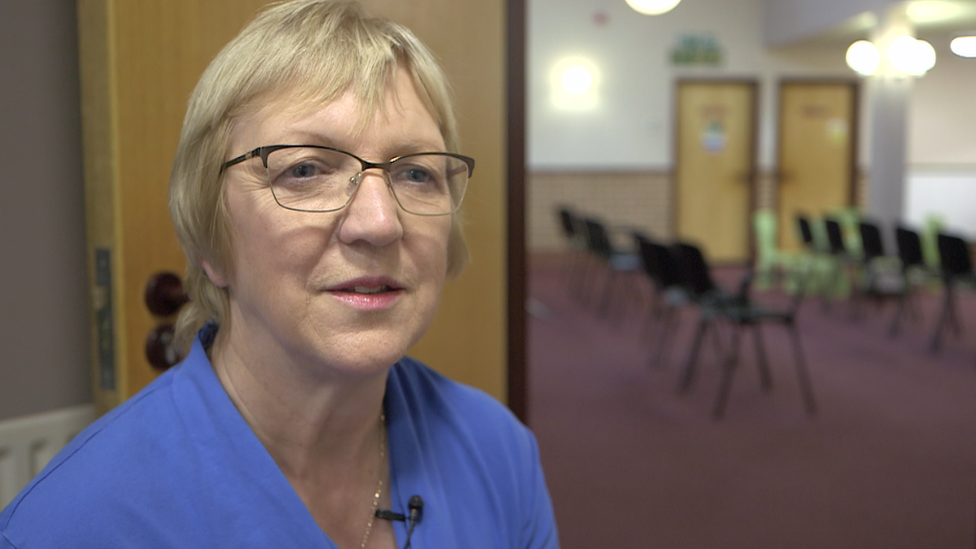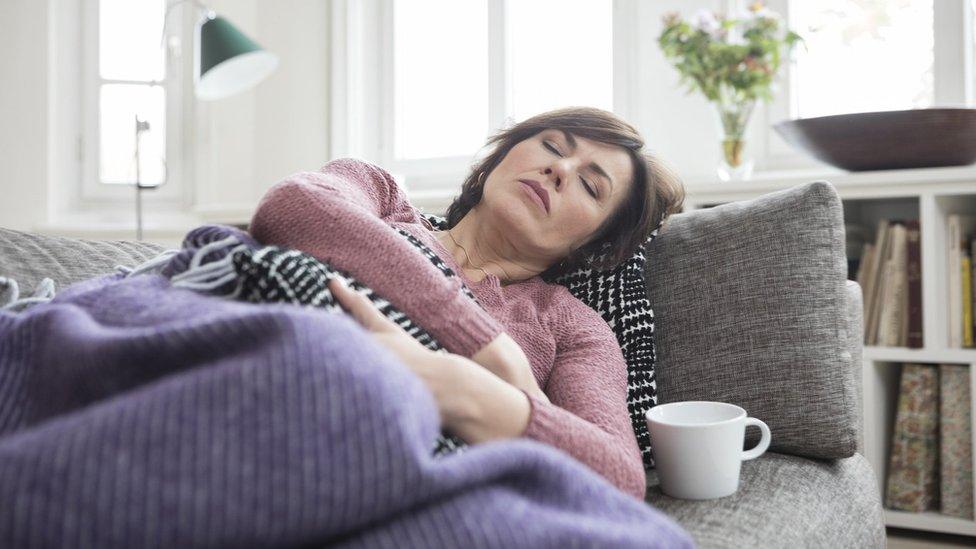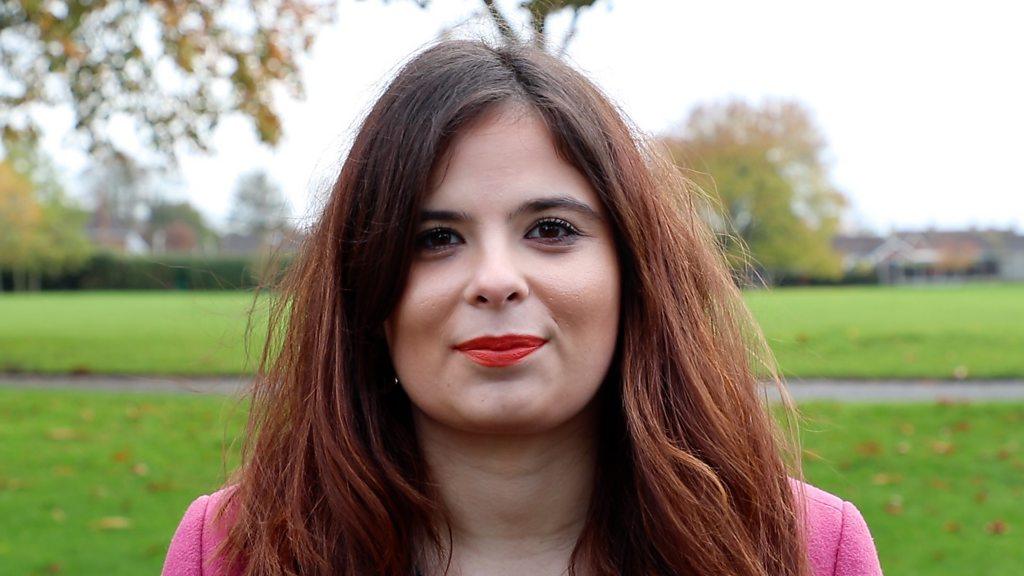Long Covid patients 'told to go away by GPs'
- Published
A long Covid sufferer calls for a "one-stop-shop clinic"
Some patients who suffered ongoing health problems after contracting Covid-19 "were told to go away and get on with things" by their family doctors, a Senedd committee has heard.
Dr Mair Hopkin, joint chair of the Royal College of GPs in Wales, told an inquiry into long Covid that some GPs "didn't understand" it early on.
The Welsh Government is considering extra support for long Covid sufferers.
But there are currently no plans for specialist clinics.
The Senedd's health committee has taken evidence from patients, medical staff and academics as part of the inquiry into the condition.
Dr Hopkin said it had taken time for some GPs, stretched by the response to the pandemic, to understand the ongoing symptoms being experienced by some Covid-19 patients.
'Very busy'
"I think people are starting to understand long Covid," she said.
"There are more people coming forward. There are probably a lot of people who came forward at the beginning and were not given the due consideration they should have been given, because people didn't understand it.
"And people were very busy - we were trying not to see patients physically in the surgery, and we were doing a lot of online and telephone consultations.
"There are some people who were told to go away and get on with things, and they may not have come back. And that does concern me. If we have got people who weren't listened to in the beginning, they need to be listened to now."

Dr Mair Hopkin said GPs did not understand long Covid early on in the pandemic
She said most GPs were now far more aware of the ongoing symptoms being experienced by their Covid patients.
Asked if a more centralised system of treating long Covid patients could help these patients, Dr Hopkin dismissed calls for a specialist centre.
"Very few patients will need that, but there will be a great need for a multi-disciplinary rehabilitation service that is accessible, easily accessible, to patients. And not necessarily needing referral by their GP, either."
'You give up'

The Welsh Government is considering extra support for long Covid sufferers
People suffering with long Covid gave evidence and called for centralised clinics to treat the condition.
Georgia Walby, from the Long Covid Wales support group, said: "These one-stop-shop clinics are needed because people do not have the energy or resources to go back and forth to their GP and be referred to different clinics. You need to go to one place and be treated.
"You give up - if you are not being listened to by your GP, you just give up. You put off ringing because it takes too much energy, and that phone call becomes a battle."
The committee also took evidence from academics who are studying long Covid.
Dr Elaine Maxwell, from the National Institute for Health Research Centre for Engagement and Dissemination, said it was important patients' concerns were not ignored in the way that those with ME had felt overlooked in the past.
She told the committee: "I think it is about believing people and taking medically unexplained symptoms seriously. That is the main problem for people with ME, they had something people didn't understand and were told it was all psychological.
"It is important we don't do that again, whilst recognising that we don't understand it. And we need to keep our minds open to a whole range of possible explanatory hypotheses, and not narrow it down too quickly. "
Unanswered questions
Health Minister Vaughan Gething told Wednesday's coronavirus briefing that the Welsh Government is considering how it can provide specialist help to people with continuing health problems after contracting coronavirus.
He said there were currently no plans for specialist clinics for long Covid, as many questions remain unanswered about the condition, "but we are looking at how to learn from what other countries do, as well as what we are doing ourselves".
"Wales is taking part in a range of research collaborations across the UK to understand more about the condition," he said.
Mr Gething said the "challenge is different for different people, so there isn't one single set of treatment systems to deal with".
"We haven't closed our ears or our minds to what is the best way to continue to support them now and in the future," he added.
- Published6 October 2020

- Published26 November 2020
